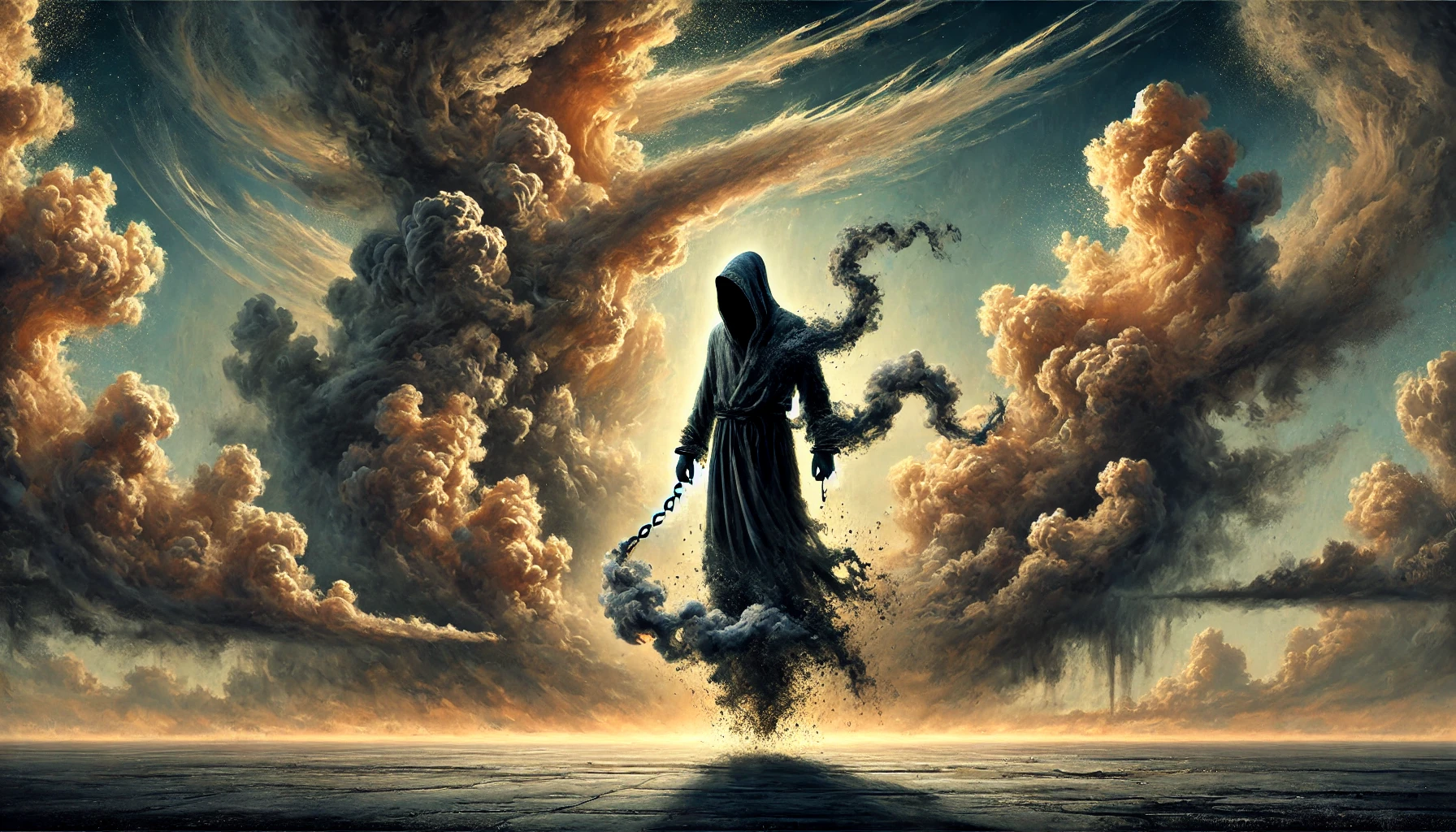The Free Thrall

Foolishly and hastily took an oath,
To ache and suffer for a cause,
Powerless, I cannot fulfill it,
Nor to it shall I get close.
Forbidden to undo what I have brought,
Upon myself or what I’ve thought,
I must obey then in fear of pain,
Agony, disdain, and eternal onslaught.
A thrall I am, and I live to serve,
I do as I’m told but not with verve,
For I’d rather go back and cease to be,
Or stay here—a barren tree.
Blissed and grateful as I am,
Saved and protected from all harm,
I can’t but contemplate I was forced,
For never have I asked to be invoked.
I was given a choice indeed, but I
Hadn’t had the wisdom to deny,
For my ignorance spans the sky,
And I must bear my word to die.
How many faults have I committed?
And commands and deeds I disobeyed?
And how not have I been punished?
Or smitten to dust for what I did?
The cause is hard, and I’m futile.
The task is there, and I’m far behind.
Yet I’m forgiven for my crimes,
And blissed again in my grind,
Blissed for no worth of mine,
Blissed again countless times.
I shall then submit as I must,
Ever grateful—The rule is just,
Acknowledged is my weakness,
Accounted for is my earthly lust.
A thrall I am, and I volunteer,
To serve and obey not only in fear,
For I can tolerate what I’ve been tasked,
And for Mercy and Forgiveness I can ask.
But if upon myself I can decree,
Where the cause is hard, and I’m but a meek
I’d rather go back and cease to be,
Or stay here—a barren tree.
Such there is Night، not Night as ours—Unhappy Folk
— J.R.R. Tolkien.
The Unhappy Folk: unhappyfolk.org
Telegram: unhappyfolk.t.me
Mail: msg@unhappyfolk.org
